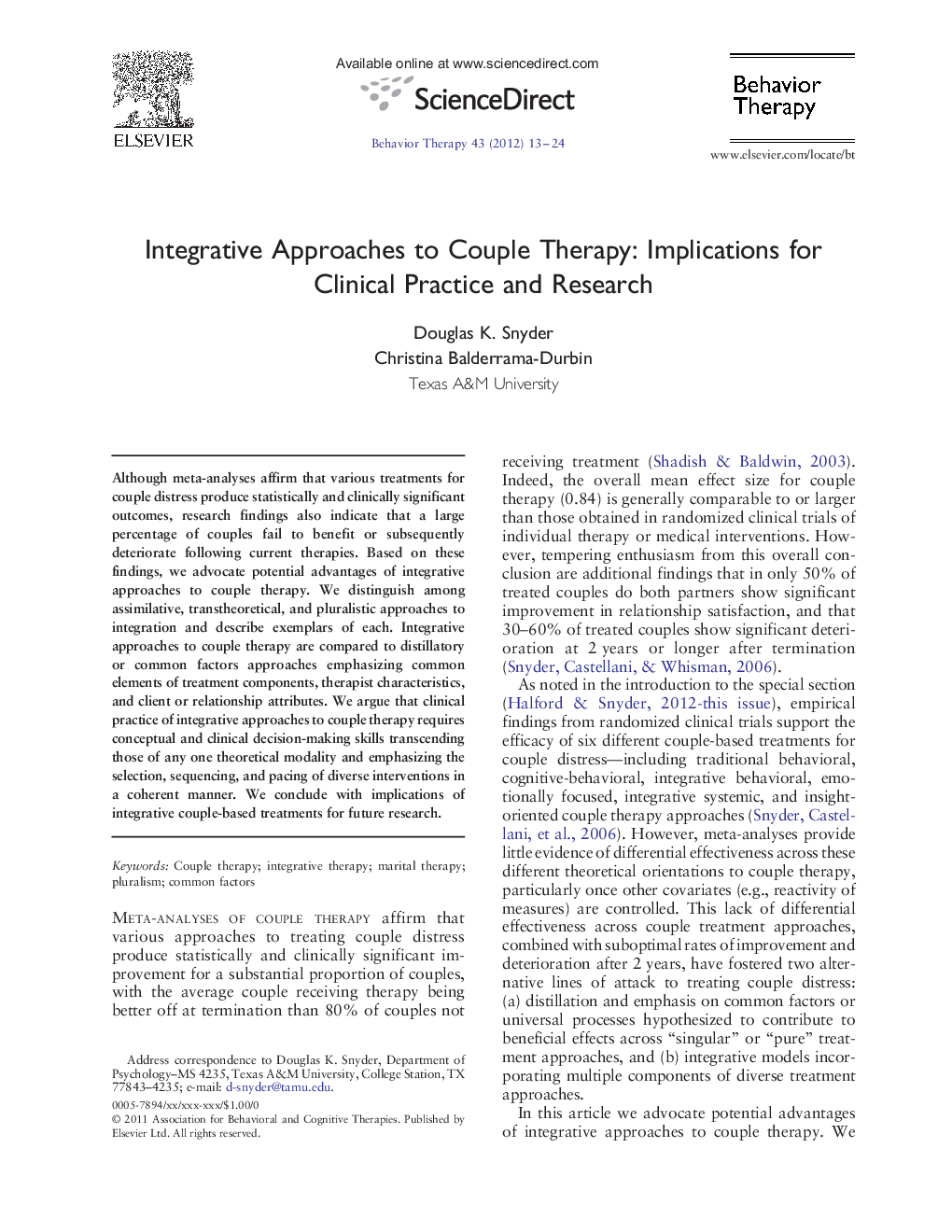| Article ID | Journal | Published Year | Pages | File Type |
|---|---|---|---|---|
| 901488 | Behavior Therapy | 2012 | 12 Pages |
Although meta-analyses affirm that various treatments for couple distress produce statistically and clinically significant outcomes, research findings also indicate that a large percentage of couples fail to benefit or subsequently deteriorate following current therapies. Based on these findings, we advocate potential advantages of integrative approaches to couple therapy. We distinguish among assimilative, transtheoretical, and pluralistic approaches to integration and describe exemplars of each. Integrative approaches to couple therapy are compared to distillatory or common factors approaches emphasizing common elements of treatment components, therapist characteristics, and client or relationship attributes. We argue that clinical practice of integrative approaches to couple therapy requires conceptual and clinical decision-making skills transcending those of any one theoretical modality and emphasizing the selection, sequencing, and pacing of diverse interventions in a coherent manner. We conclude with implications of integrative couple-based treatments for future research.
► We advocate potential advantages of integrative approaches to couple therapy. ► We distinguish among assimilative, transtheoretical, and pluralistic approaches to integration. ► We compare integrative couple therapy to distillatory or common factors approaches. ► We argue that integration requires unique conceptual and clinical decision-making skills. ► We conclude with implications of integrative couple-based treatments for future research.
